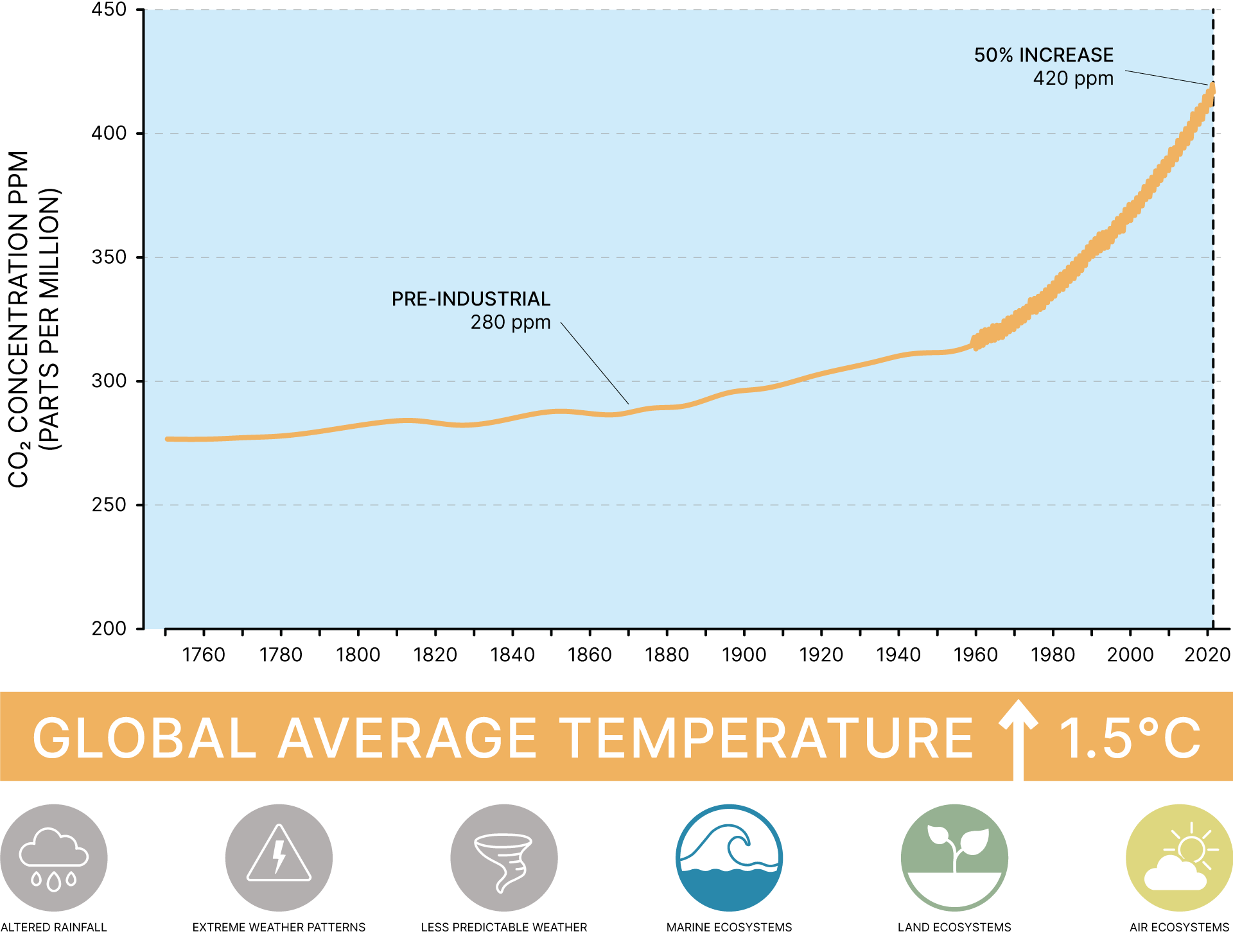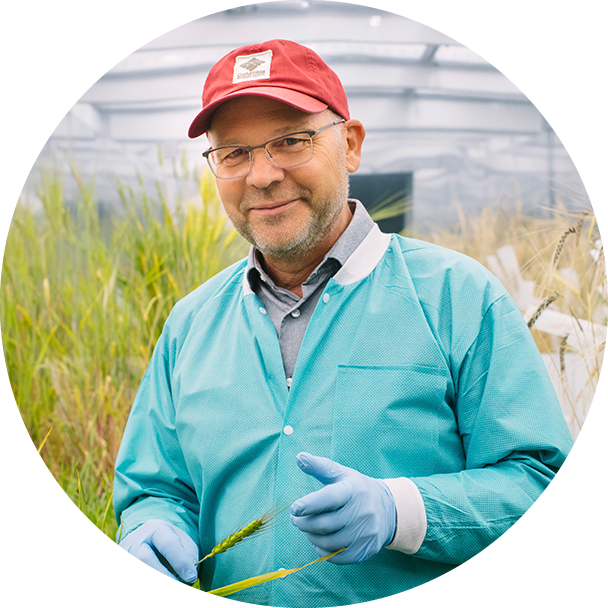Searching for Scientific Solutions to the Climate Crisis
When? 6-7 November 2023
Where? Building 19, Hall 1, King Abdullah University of Science and Technology
The CO2 concentration in the atmosphere has dramatically increased from 280 ppm (pre-industrial) to 420 ppm within 150 years. As a consequence, the global average temperature has increased by 1.5°C. This anthropogenic climate change is associated with altered rainfall patterns, extreme weather events and less predictable weather patterns. This presents a major challenge to marine, land, and air ecosystems and threatens the foundations of human civilization. The atmospheric temperature increase caused by rising carbon dioxide concentrations will not decrease significantly even after zero carbon emissions (peak carbon) have been achieved. The climate effects of atmospheric CO2 at peak carbon will remain irreversible for at least 1,000 years, if not counteracted by a net reduction in atmospheric CO2.
Although the International Panel on Climate Change (IPCC) had set the goal of limiting global warming to less than 1.5°C, this goal is not possible to hold any more. Therefore, achieving climate neutrality is more important than ever, by reducing net CO2 emissions to zero through a 45% reduction in emissions within 10 years. This represents a disruptive goal which demands new thinking, solutions and commitments. It is along these lines that the conference will bring together top scientists from marine, soil, plants and human fields to discuss various approaches regarding climate change solutions in their respective disciplines.


Growing global populations, shifting dietary patterns towards greater meat consumption, and increased food waste, are major factors impacting global food systems. It is unclear how an increase of 70-100% in food production to meet global demands can be achieved in a sustainable manner. Given the widespread degradation of terrestrial and aquatic ecosystems, there is no major surplus of arable land or water to produce food. To increase food production using current practices will require more chemical input, with major negative environmental, climate and human health related impacts.
Given the complexity of the effects of climate change at all levels of planetary life, it is highly unlikely that exclusive disciplinary thinking will provide solutions that will hold up to their promises. Therefore, current thinking needs to be readjusted both at the institutional, funding, as well as subject levels to enable multidisciplinary scientific approaches. The conference aims to increase scientific exchange between fields needs and foster new forms of interdisciplinary communication. Overall, the conference will try to leave well-trodden disciplinary paths and search for novel interdisciplinary solutions and approaches.
Unpredictable rainfall patterns, shrinking ice sheets, rising sea levels, floods and droughts – most impacts of climate change are linked to water.
The decline in soil moisture increases the need for irrigation in agriculture, leading to reduced yield and desertification.
More severe weather events, including storms, floods, heat waves, and drought affect plant growth and reproduction with potentially dramatic impacts on food production.
Climate change affects human health by enhancing pollution of air and drinking water, destroying housing, causing insufficient food and spreading diseases into new regions.


One Planet One Health Lead
—
Heribert Hirt has published several hundred articles on how plants can survive under abiotic or biotic stress conditions. His current research focuses on how beneficial microbes can help to grow plants under climate change and increasing chemical challenges. His work aims to transform agriculture to produce healthy food for everyone.

—
Professor Heribert Hirt leads the PlantACT! initiative which aims to function as a think tank of plant science experts to tackle climate change.